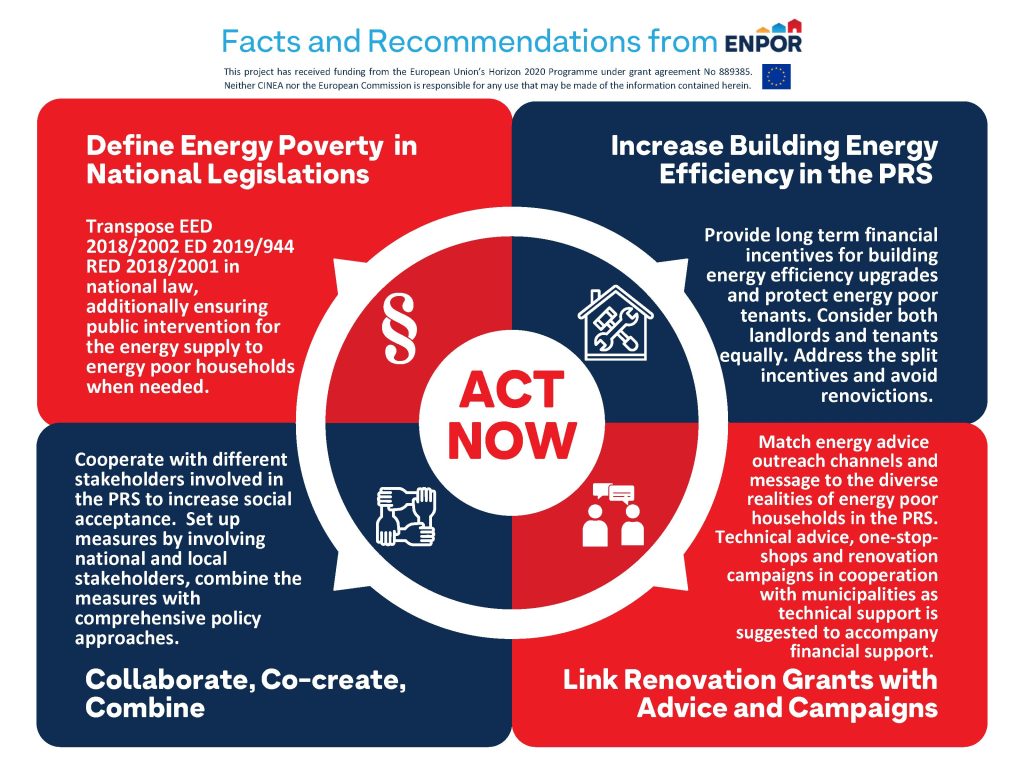Testing energy efficiency support schemes just for fun wouldn’t make sense. Instead, we want to know: What effect do they have? What methods and data work best to understand their impact? Last October, Manon Burbidge from the University of Manchester (UK) shared some science-backed insights around these questions with the POWER UP partners. Manon is part of the ENPOR project team, a Horizon 2020 funded project which proposes actions to mitigate energy poverty in the European private rented sector (PRS). This sector is currently poorly addressed in energy policies and in many countries across Europe it is the worst affected tenure type with regards to energy poverty.
ENPOR sought to adapt existing energy efficiency policies in seven European countries to account for the needs of the private rented sector, in collaboration with a range of sector stakeholders, including landlords and tenants. In October, Researcher Manon Burbidge shared ENPOR’s approach for measuring and evaluating the impact of this key element of the project. In order to test the effectiveness of these adapted policies, a series of research-grounded KPIs (key performance indicators) were developed, based on in-depth analysis of academic and policy literature. They align with the basic principles of environmental justice called procedural, recognition and distribution justice. Each of the adapted policies were scored against the KPIs.
Examples of these included:
– whether vulnerable tenants were consulted in the decision-making process,
– whether the policy led to capacity building amongst stakeholders, and
– whether the pilot policy led to improved energy efficiency of dwellings.
Figure above: Example of evaluation results
During the session, Manon outlined the process of undertaking the evaluation, and reflected upon the associated experiences (and challenges). How was the project evaluation successful in considering who benefits? What were both the positive and negative impacts of the adapted policies? When thinking about how the evaluation process could be further developed, the opportunity to bring more descriptive justifications for each score was identified. She also stressed the importance of collecting data throughout a project’s duration, and for developing KPIs as an iterative process.
By hearing about the experiences of another project, the POWER UP pilots were able to apply these insights to their own evaluation practices.
Project cross-pollination is very important for sharing best practices, learning about different approaches to similar problems, and avoiding pitfalls. The exchange of knowledge about the ENPOR project will support the POWER UP project as it moves onto developing its evaluation approach.
ENPOR and POWER UP came together in October 2023 during the POWER UP consortium meeting in Modena, Italy which included a session focused on “Evaluating Impact”.

